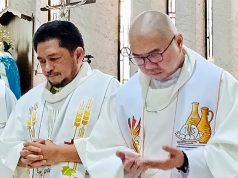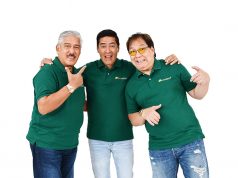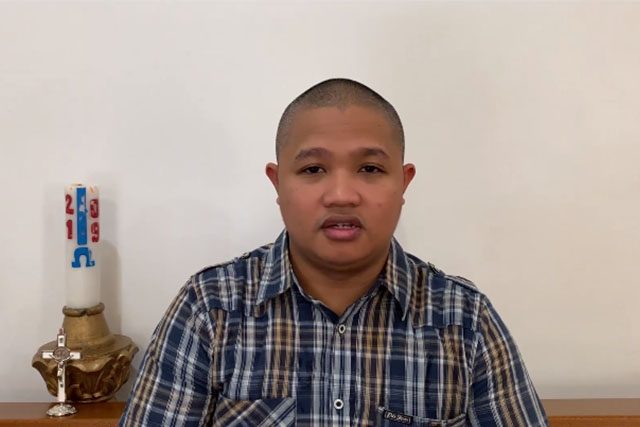
Peter Joemel Advincula or “Bikoy” denied signing a sworn statement supposedly secured by Senate President Vicente “Tito” Sotto” and claimed that it was not notarized in the first place.
In a video released on May 12, Sunday on Daily Motion, Advincula shared that the signature seen on a 2016 affidavit released by Sotto to the public was not his own.
“Unang-una, hindi po sa akin ang pirmang ipinakita. Ang layo-layo po sa tunay kong pirma. Ni hindi nga notarized ang dokumento. Kaya paano ko masasabi na ‘yun ay isang sworn affidavit,” he said in the video.
Advincula shared a scan of his identification card with a signature and compared it to the signature found in Sotto’s released document where his name was involved.
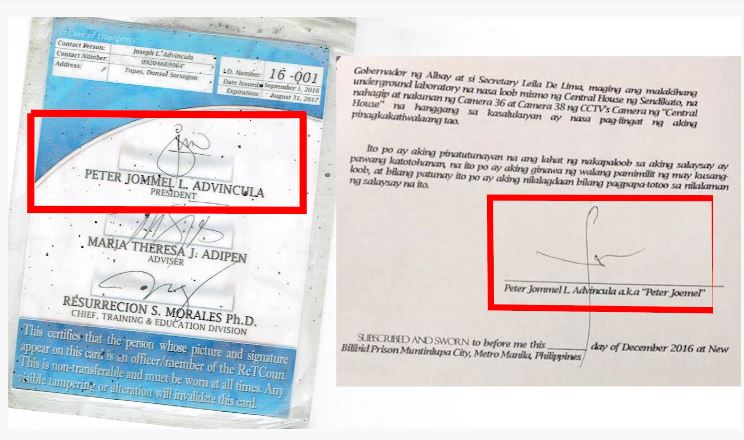
The signature on the ID has more letters compared to the document and has a distinct circle on top of the first letter. The same type of penmanship could be seen on the front view of Advincula’s ID.
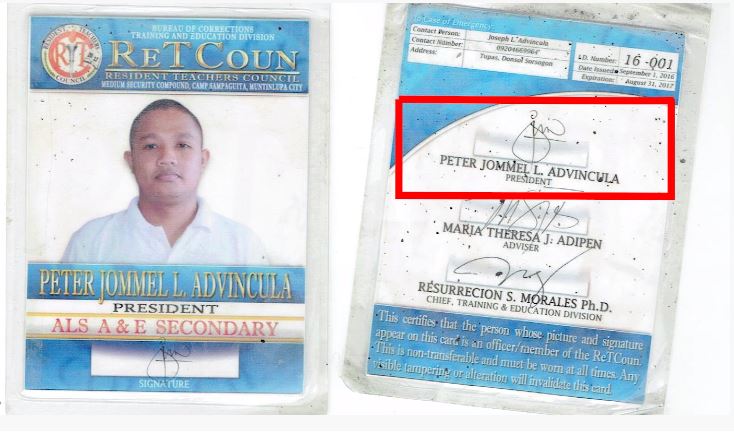
Meanwhile, the signature on the document does not have a circle on top of the first letter—which appeared to be a semblance of the letter “f.” It noticeably contained fewer curvatures as well.
Photos released by a reporter verified that the document, despite stating that it was “secured and sworn” below the page, did not contain a date and a notary stamp to validate that the individual signed the affidavit with a witness.
“Si Hutch Altavas po, tao ni Senator Sotto, ang bumisita sa akin noong kalagitnaan ng Oktubre at Nobyembre, taong 2016, upang ipatunayan, i-validate kung totoo raw ang mga dokumento na nasa kanilang mga kamay,” Advincula claimed.
“Wala po akong ibinigay sa kanila dahil ako nga po ay nakakulong pa, at wala po akong kahit isang listahan. Wala po akong pinirmahan,” he added.
Last week, Sotto claimed that Advincula reached out to him in 2016 and accused former President Benigno “Noynoy” Aquino, former Interior Secretary Mar Roxas and Sen. Leila de Lima of being involved in a large drug syndicate.
The accusations, according to the senator, was written in a supposedly sworn affidavit on December 2016—when Advincula was still serving jail time for illegal recruitment—and secured by Sotto’s aide.
Advincula in the video claimed that he never sought help to be released from prison since according to him, he already knew that he would be pardoned that time.
The affidavit up close
A document that is not notarized cannot be called a public document, legal analyst and FEU Institute of Law Dean Mel Sta. Maria said in a 2017 interview.
“Basta’t hindi sinumpaan (As long as it is not sworn), it is just a private document. Can you still use it? Yes, it can still be used. But its probative value is not that high,” he said before.
“If it is notarized, it attains the status of a public document. Because it says in the notary, ‘Sworn to, before me, a notary public, that… this is his free will, etc etc, that I know him, he is the one who took that,'” Sta. Maria added.
“So it attains the status of a public document, and if it attains the status of a public document, its probative value increases, so that it can be used legally, strongly,” he said.
“It can still be used as evidence of your statement. Because, if you implicated yourself in your statement, that’s a statement against interest, which is also a very strong document, although it is for private (ones),” Sta. Maria said.





